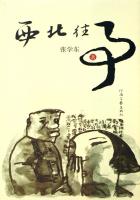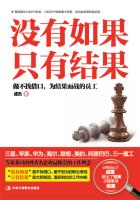It is useful to have examined the number of meanings of a term both for clearness' sake (for a man is more likely to know what it is he asserts, if it bas been made clear to him how many meanings it may have), and also with a view to ensuring that our reasonings shall be in accordance with the actual facts and not addressed merely to the term used. For as long as it is not clear in how many senses a term is used, it is possible that the answerer and the questioner are not directing their minds upon the same thing: whereas when once it has been made clear how many meanings there are, and also upon which of them the former directs his mind when he makes his assertion, the questioner would then look ridiculous if he failed to address his argument to this. It helps us also both to avoid being misled and to mislead by false reasoning: for if we know the number of meanings of a term, we shall certainly never be misled by false reasoning, but shall know if the questioner fails to address his argument to the same point; and when we ourselves put the questions we shall be able to mislead him, if our answerer happens not to know the number of meanings of our terms. This, however, is not possible in all cases, but only when of the many senses some are true and others are false. This manner of argument, however, does not belong properly to dialectic; dialecticians should therefore by all means beware of this kind of verbal discussion, unless any one is absolutely unable to discuss the subject before him in any other way.
The discovery of the differences of things helps us both in reasonings about sameness and difference, and also in recognizing what any particular thing is. That it helps us in reasoning about sameness and difference is clear: for when we have discovered a difference of any kind whatever between the objects before us, we shall already have shown that they are not the same: while it helps us in recognizing what a thing is, because we usually distinguish the expression that is proper to the essence of each particular thing by means of the differentiae that are proper to it.
The examination of likeness is useful with a view both to inductive arguments and to hypothetical reasonings, and also with a view to the rendering of definitions. It is useful for inductive arguments, because it is by means of an induction of individuals in cases that are alike that we claim to bring the universal in evidence: for it is not easy to do this if we do not know the points of likeness. It is useful for hypothetical reasonings because it is a general opinion that among similars what is true of one is true also of the rest. If, then, with regard to any of them we are well supplied with matter for a discussion, we shall secure a preliminary admission that however it is in these cases, so it is also in the case before us: then when we have shown the former we shall have shown, on the strength of the hypothesis, the matter before us as well: for we have first made the hypothesis that however it is in these cases, so it is also in the case before us, and have then proved the point as regards these cases. It is useful for the rendering of definitions because, if we are able to see in one glance what is the same in each individual case of it, we shall be at no loss into what genus we ought to put the object before us when we define it: for of the common predicates that which is most definitely in the category of essence is likely to be the genus. Likewise, also, in the case of objects widely divergent, the examination of likeness is useful for purposes of definition, e.g. the sameness of a calm at sea, and windlessness in the air (each being a form of rest), and of a point on a line and the unit in number-each being a starting point. If, then, we render as the genus what is common to all the cases, we shall get the credit of defining not inappropriately. Definition-mongers too nearly always render them in this way: they declare the unit to be the startingpoint of number, and the point the startingpoint of a line. It is clear, then, that they place them in that which is common to both as their genus.
The means, then, whereby reasonings are effected, are these: the commonplace rules, for the observance of which the aforesaid means are useful, are as follows.















